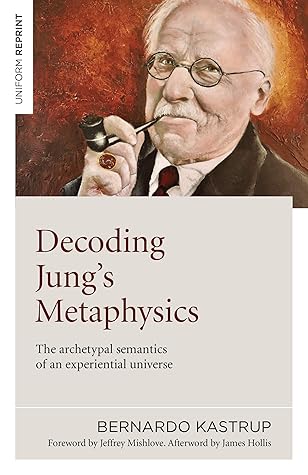More on this book
Kindle Notes & Highlights
So for Jung consciousness rests on the unconscious, not the other way around. The latter is the original psyche, the root from which consciousness grew over time as the properties of volitional control, self-reflective introspective access and cognitive association slowly arose in some originally unconscious contents.
It is the tension between the ‘low,’ egotistic energy of instinct on the one hand and the ‘high,’ impersonal energy of spirit on the other that fuels psychic life and creates its dynamisms
The ultimate goal of psychic life is to expose to the light of consciousness—i.e. to cognitively connected, deliberate, self-reflective introspection— every aspect of the psyche, either directly or through their effects on ego-consciousness, so the psyche can meta-cognitively know itself fully.
In an important sense, what Jung is saying is that our physical, waking reality is amenable to symbolic interpretation, just as our dreams are. The external world, too, conveys meaning through symbolic expression, as if it were “the dream of a greater and more comprehensive consciousness.” 8
In other words, causality is to synchronicity as Newtonian mechanics is to quantum physics. Causal regularities are just discernible local contours of much more subtle, global patterns of similarity in nature. For Jung, ultimately everything in nature unfolds according to similarity-based associations.
It is an almost ridiculous prejudice to assume that existence can only be physical.
Jung seems to be stating, as plainly as it can be stated, that what we call the ‘sympathetic nervous system’ represents a transpersonal metaphysical ground that psychically connects living beings together, allowing them to directly exchange knowledge and psychic influences with one another .
The qualities we attribute to physicality—form, color, temperature, consistency, concreteness, etc.—are merely appearances; they are how a fundamentally psychic ‘world-soul’ presents itself on the screen of our perceptions.
For Jung, the external physical world and the collective unconscious are one and the same thing presenting itself to us in two different ways. Both impinge on ego-consciousness, generating autonomous imagery we can witness but not control. Put simply, the supposedly material substrate underlying perception isn’t material at all; it is the collective unconscious itself.
By epistemically resisting the attribution of reality to anything non-psychic—and thereby relegating non-psychic matter and spirit to the status of mere concepts (cf. AA: 112-113)—Jung ends up finding God in a metaphysically extended form of psyche, far transcending human boundaries. The divinity, for him, is a unifying, universal, all-encompassing field of phenomenality.
Meaninglessness inhibits fullness of life and is therefore equivalent to illness. Meaning makes a great many things endurable—perhaps everything. (MDR: 373)
what does man possess that God does not have? Because of his littleness, puniness, and defencelessness against the Almighty, he possesses … a somewhat keener consciousness based on self-reflection : he must, in order to survive, always be mindful of his impotence. God has no need of this circumspection, for nowhere does he come up against an insuperable obstacle that would force him to hesitate and hence make him reflect on himself. (AJ: 14-15,
Although he has superior and even omniscient knowledge, God cannot “ consult his total knowledge” (AJ: 37, emphasis added)—i.e. the divinity cannot deliberately introspect as we can. Instead, God is both instinctual and spiritual, surrounding us from both ends of the psychic spectrum (see Figure 1 again), but not conscious as Jung defines the word. Only through us does the divinity attain consciousness.
What truly matters in Jung’s message is the understanding that we are ultimately grounded in something infinite and eternal, and that our lives as finite beings, illusory as they may be, serve a divine purpose.
While everything else that exists takes up a certain amount of room, the soul [i.e. the psyche] cannot be located in space. … What bulk can we ascribe to thoughts? Are they small, large, long, thin, heavy, fluid, straight, circular, or what? … [So] here we are with our immediate experiences of … something that has taken root in the midst of our measurable, ponderable, three-dimensional reality, that differs bafflingly from this in every respect and in all its parts, and yet reflects it. (MMSS: 188)
Upon lying in bed at night, after a long day, we may ask ourselves the same question we ask upon waking up from a dream: What did this day mean? What is the dream we call physical reality saying about its dreamer? The attempt to answer this question by leveraging our unique ability to reflect is our service to God. The universe is God’s dream and we are here to interpret it.


